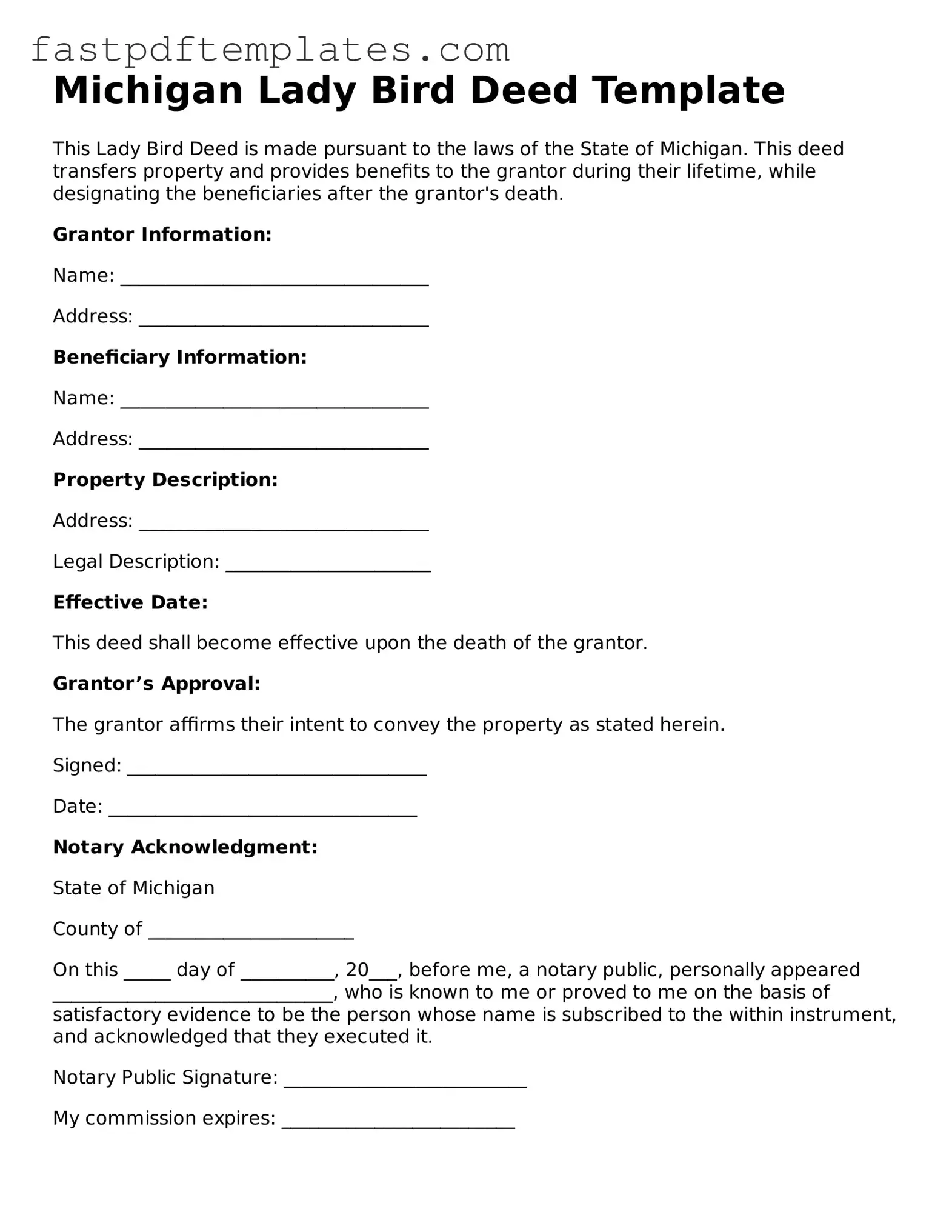Attorney-Approved Michigan Lady Bird Deed Document
The Michigan Lady Bird Deed is a unique legal document that allows property owners to transfer their real estate to beneficiaries while retaining control during their lifetime. This deed offers a straightforward way to avoid probate and ensure a smooth transition of property upon the owner's passing. Understanding its benefits and how to properly execute the form can simplify estate planning for many families in Michigan.
Access Document

Attorney-Approved Michigan Lady Bird Deed Document
Access Document
Your form still needs completion
Complete your Lady Bird Deed online and download the final PDF.
Access Document
or
Click for PDF Form
